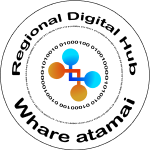Digital Opportunities
Census 2018 results show the percentages of Tairāwhiti/Gisborne households with access to the Internet at 78% was lower than the national average of 86%.
Similarly, access to a mobile phone was, at 87%, lower in Tairāwhiti/Gisborne than the national average of 92%.
Around 66% of 10-11 year-olds, 67% of 12-14 year-olds, 66% of 15-19 year-olds and 58% of 20-24 year-olds in the district lived in households with access to the Internet. Across the country, the equivalent rates were 81%, 82%, 81% and 77% respectively. Some neighbourhoods within the CAUs have less than 40% of households with internet access.
Trends within the district show that more affluent communities within the region were below the national average for household internet access but caught up and even passed the average between 2001 and 2013. Trends for the poorer communities show the gap widening between the national average and places like Ruatoria, Kaiti and Elgin.
This is reflected in regional employment statistics for Tairâwhiti that show the most common work in the region is labouring in the primary sector (farming, horticulture, viticulture & forestry) while professional, scientific and technical services account for only 5% of the workforce, compared to 9% nationwide. In places like Ruatoria close to half the working age population are not employed.
Without significant investment to increase internet access, the Digital Divides both within Tairāwhiti and between Tairāwhiti and the rest of the country will continue to increase.
As the labour market for higher paid skilled and semi-skilled jobs increasingly expects employees to be digitally literate, workers and potential business owners need to have both knowledge of and access to the online environment.
Likewise communication between families, cultural heritage, public services and nearly every other aspect of society is moving online, so citizens and family members are increasingly expected to communicate via the internet and need the skills and infrastructure at home or in public places to enable this to happen.
